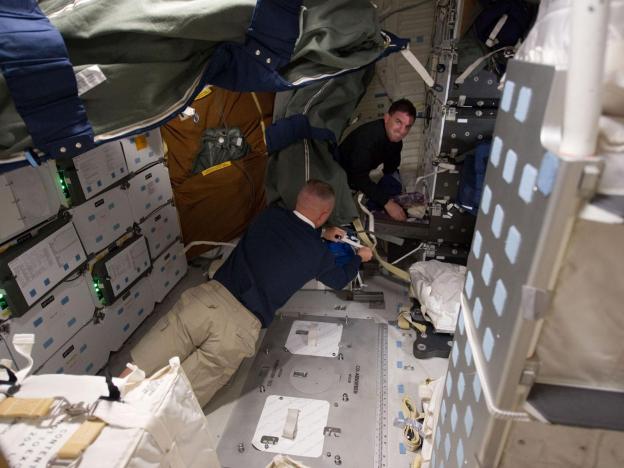 This morning, the crew of the space shuttle Atlantis woke not to the buzzing of their space clocks nor to the ringing of their space phones. Instead, they were serenaded awake by the sweet, sweet crooning of Elton John. Suitably, he played “Rocket Man.”
This morning, the crew of the space shuttle Atlantis woke not to the buzzing of their space clocks nor to the ringing of their space phones. Instead, they were serenaded awake by the sweet, sweet crooning of Elton John. Suitably, he played “Rocket Man.”
After jamming out through the chorus for about a minute, Sir Elton had a quick message for people involved with the mission. “Good morning, Atlantis, this is Elton John,” he said. “We wish you much success on your mission. A huge thank you to all the men and women at NASA who worked on the shuttle for the last three decades.”
The Atlantis responded in good humor: “Good morning Houston. Wow, Elton John. That is absolutely fantastic. We are absolutely honored that you took the time to join the crew this morning and wake us up. We invited the [International] Space Station crew over here and we’re all over to enjoy the occasion. I think it just illustrates the far-reaching legendary 30 years of shuttle flight and also the amount of people globally that have been affected by the shuttle program itself. Thank you Elton, for taking again the time to join us and it’s great to be here and it’s great to be in space.”
“Rocket Man” debuted in 1972, making it about a decade older than the space shuttle. According to NASA, the song “describes a long-term space bound astronaut’s mixed feelings at leaving his family to do his job,” and has been used four times to wake crews aboard either the Discovery or Atlantis, although there’s no word on whether they were live performances like today’s. It’s certainly not the first time NASA has had celebrities on the radio.
The performance will most likely prove to be the highlight of a day dedicated to moving boxes. The Atlantis and ISS Expedition 28 crews will continue unloading the Rafaello multi-purpose module on board the shuttle, which delivered about 9,400 pounds of gear to the ISS, including more than a ton of food which NASA says is enough to sustain the station’s operations for a year.


